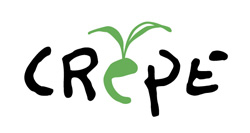A collaborative approach to environmental problems
The term 'sustainable agriculture' can mean different things to different people. Under the auspices of the 'Co-operative research on environmental problems in Europe' (CRÊPE) project, civil society organisations (CSOs) and academics joined together to explore these diverse definitions. A 'cooperative research' approach was used and included CSOs so that knowledge could be produced based on a broader form of expertise. Cooperative research is a working partnership in which the process is as important as the outcome and involves researchers and other groups working closely together building knowledge. The process recognises the value of diverse experiences, knowledge and practices, and can incorporate contending accounts of relevant and reliable information. The project sought to identify the different opportunities and obstacles arising and what lessons may be learnt so that they could be applied to cooperative research efforts in the future. The importance of defining problems was also recognised and a wide range of methods used in cooperative research were designed and tested. CRÊPE aimed to relate research more closely with society’s needs by improving understanding of agricultural and environmental issues and sustainable development. The result was better informed policy and research priorities for Europe.



